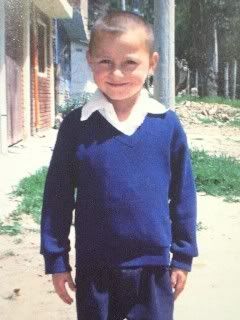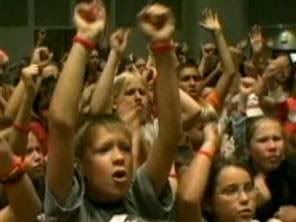I first stumbled upon A.B. Paterson's (1864-1941) poem
The Man From Snowy River when I noticed two lines of verse scribbled at the bottom of the front of a 10-dollar Aussie note:

"There was movement at the station, for the word had passed around
That the colt from old Regret had got away"
The poem tells the story of a daring young horseback rider who recaptured the colt of a champion racehorse that had escaped from its paddock to live in the mountains with the wild horses. And famous among Paterson's poems is one that has evolved over the century into Australia's unofficial national anthem:
Once a jolly swagman camped by a billabong,
Under the shade of a coolibah tree,
And he sang as he watched and waited 'til his billy boiled,
"Who'll come a-waltzing Matilda, with me?"
Waltzing Matilda, Waltzing Matilda
Who'll come a-waltzing, Matilda, with me?
And he sang as he watched and waited 'til his billy boiled,
"Who'll come a-waltzing Matilda, with me?"
Along came a jumbuck to drink at the billabong,
Up jumped the swagman and grabbed him with glee,
And he sang as he stowed that jumbuck in his tucker bag,
"You'll come a-waltzing, Matilda, with me."
Waltzing Matilda, Waltzing Matilda
Who'll come a-waltzing, Matilda, with me?
And he sang as he watched and waited 'til his billy boiled,
"Who'll come a-waltzing Matilda, with me?"
Up rode the squatter, mounted on his thoroughbred,
Down came the troopers, one, two, three,
"Whose is that jumbuck you've got in your tucker bag?"
"You'll come a-waltzing, Matilda, with me."
Waltzing Matilda, Waltzing Matilda
Who'll come a-waltzing, Matilda, with me?
And he sang as he watched and waited 'til his billy boiled,
"Who'll come a-waltzing Matilda, with me?"
Up jumped the swagman, leapt into the billabong.
"You'll never catch me alive," said he,
And his ghost may be heard as you pass by the billabong.
"Who'll come a-waltzing, Matilda, with me?"
Waltzing Matilda, Waltzing Matilda
Who'll come a-waltzing, Matilda, with me?
And he sang as he watched and waited 'til his billy boiled,
"Who'll come a-waltzing Matilda, with me?"

For over 100 years
Waltzing Matilda has been passed on by oral tradition, in written forms, in sound recordings and other media. It has been represented and reinterpreted in countless artistic works, through music, film, television, dance and literature. The song appears in multiple genres and hundreds of locations—in parodies and paintings, in travel stories, in children's books, at sporting events and national parades. It has been used to commemorate Australia's participation in wars. In other words, the song has assumed a special status in the nation's cultural life.
According to Wikipedia:
"There have long been persistent calls for the establishment of
Waltzing Matilda as the national anthem over the current national anthem,
Advance Australia Fair. The song is certainly easily recognisable and easily sung, but its lyrics, relating the story of a swagman (see glossary of terms below) who steals a sheep and drowns himself when law enforcement arrives, render it unlikely to ever gain acceptance in official circles. Many Australians, however, continue to regard it with great favour and sentimentality. Some have suggested using the same tune but with different lyrics, but supporters argue [Paterson's] lyrics contribute substantially to the song's character."
GLOSSARY OF TERMSBillabong: A waterhole near a river
Billy: A tin can with a wire handle used to boil water
Coolibah: A eucalyptus tree
Jumbuck: A sheep
Squatter: A wealthy land owner
Swagman: A drifter, or hobo, an itinerant shearer who
carried all his belongings wrapped up in a blanket or
cloth called a "swag"
Trooper: A policeman, a mounted militia-man
Tucker Bag: A bag for keeping food
Waltzing Matilda: To travel from place to place in search
of work with all one's belongings on one's back wrapped
in a blanket or cloth




 I think people at the Jesus Camp are seriously misguided to inject militant ideas into Jesus' teachings and then indoctrinate youths with what's not taught in the Bible to begin with. Pastor Beckey Fischer of Jesus Camp
I think people at the Jesus Camp are seriously misguided to inject militant ideas into Jesus' teachings and then indoctrinate youths with what's not taught in the Bible to begin with. Pastor Beckey Fischer of Jesus Camp
